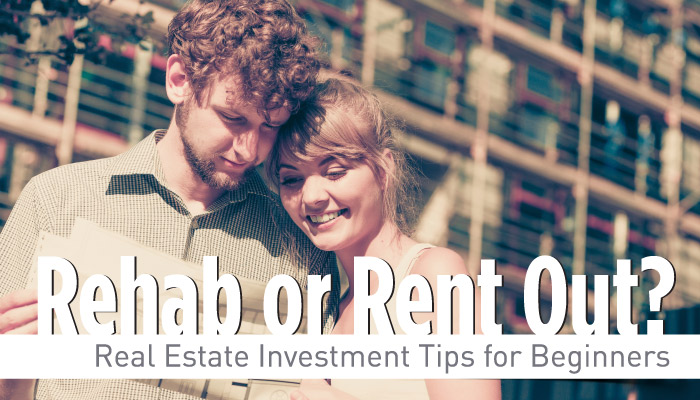
With mortgage rates still hovering near historic lows, more people are turning to real estate investments as a way to build and preserve wealth. Whether you start fixing and flipping properties or buying and renting them out for monthly cash flow, either investment style can make your money work harder for you.
Before you start investing in real estate, it’s important to line up professionals to help you make offers when you find them. Among your team members, you will want to include:
• A savvy, local real estate professional
• A mortgage broker or banker to help you get financing
• A real estate attorney to write and reviewing contracts
• An appraiser who knows the market and will help you get a correct property appraisal
• An accountant who is well versed in real estate investments
• A good contractor, for rehabbing or repairs
Then, you’ll need to determine your real estate investment style.
Rehab or wholesale properties for short-term ROI
The advantage of flipping properties is that you can end up with a good return on investment (ROI) in the short term. For example, you buy a property for $100,000, and invest $50,000 into repairs. Once it’s rehabbed, your property is valued at $200,000, and you sell it for a $50,000 profit.
Once you know where to find rehab opportunities, you can easily repeat the process by reinvesting proceeds from a previous flip into the next property. This is where working with savvy real estate professional can help. They can help you find the right fixer-uppers that may be under market value. A Realtor will have access to many properties that may not be publicly available.
When you are evaluating a property, you will need to look at the whole picture to ensure it will bring you a profit once you resell it. Beyond the actual purchase price and rehab costs, your budget should include carry mortgage payments, property taxes, utilities, and insurance. If it looks good on paper, you can get your real estate team to help you quickly make the offer.
Buy-and-hold rental properties for monthly cash flow
If you find the right long-term buy-and-hold rental property, you can earn consistent cash flow each month. However, you’ll need to carefully review the operating expenses on the property and what tenants are willing to pay for the space to know if you’ll make or lose money each month.
Does your long-term investment make sense on paper? In other words, you will need to understand if your monthly cash flow will be positive or negative.
For example, say your total costs to buy a duplex was $20,000, including down payment and closing costs. You can rent each of the units for $600. Assuming your building is 100% occupied, you’ll make $1200 per month in income. Your expenses include mortgage payments, taxes, insurance, utilities, and management fees, and you want to set aside some cash each month for capital expenditures and routine repairs. You calculate that your expenses add up to $1100 per month. Once you subtract your expenses from your income, you’ll have a positive cash flow of $100 per month.
You can also add amenities, such as coin laundry and vending machines, to increase your potential monthly income. If your property has space to add a billboard, you can earn advertising revenue from renting that space, too. And when you decide to sell, your property’s value will likely have increased both from the overall rising property values and by the improvements you made to increase the cash flow.
Where should I start investing?
Contact our Guest Blogger - Alan Shaffer, if you want to learn about investment properties in your local area. He can help you find the right properties that will fit into your budget and your overall goals.

 Print
Print
